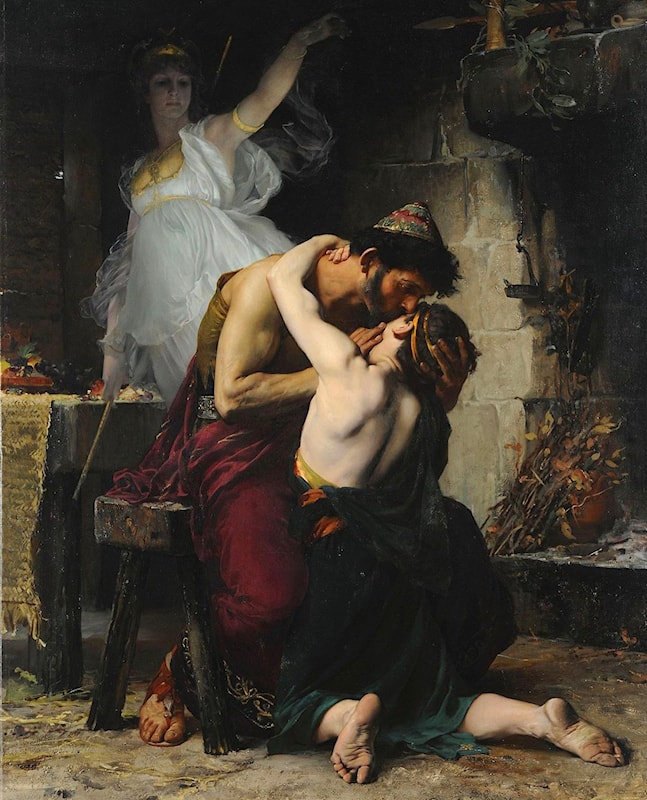Note: If you wish to receive, via e-mail, (1) my weekly newsletter or (2) daily copies of these posts, write to me at [email protected]. Comments may also be sent to this address. I promise not to share your e-mail with anyone. To unsubscribe, write here as well.
Tuesday
I’ve just returned from a memorial service for my brother David, who managed to survive pancreatic cancer for seven years before finally succumbing. I had forgotten how beautiful and restorative it can be for a family to come together to mourn one of their own. At moments like this, sometimes we open up in unexpected ways, discovering previously unknown depths to people we thought we knew. It’s unfortunate it takes a death to make this happen but, then again, such bonding provides a degree of consolation.
At this service I was particularly sustained by the presence of the two magnificent young men who are my sons. Darien is a Chief Product Officer for a company that services restaurants—his own company just merged with the one he works for now—and Toby is an English professor. Looking back at the joy they brought me in this time of sorrow, I am reminded of the reunion of Odysseus and Telemakhos in Book XVI of The Odyssey.
Odysseus has returned home in disguise and is staying with his loyal servant, the swineherd Eumaios. While they are dining, Telemakhos makes a surprise appearance. Eumaios, who knows that the suitors have been planning to kill him, responds as the disguised Odysseus would like to:
But before [Odysseus] finished,
his tall son stood at the door.
The swineherd rose in surprise, letting a bowl and jug
tumble from his fingers. Going forward,
he kissed the young man’s head, his shining eyes
and both hands, while his own tears brimmed and fell.
Think of a man whose dear and only son,
born to him in exile, reared with labor,
has lived ten years abroad and now returns:
how would that man embrace his son! Just so
the herdsman clapped his arms around Telemakhos
and covered him with kisses–for he knew
the lad had got away from death.
This moving interaction will be reenacted a little while later between Odysseus and Telemakhos but let’s stay with Eumaios for the moment:
Light of my days, Telemakhos,
you made it back! When you took ship for Pylos
I never thought to see you here again.
Come in, dear child, and let me feast my eyes;
here you are, home from the distant places!
Telemakhos then turns to Odysseus and, although believing himself to be addressing a stranger, behaves courteously and magnanimously, as befits a prince. Then we have the moment when, after the two step outside, Odysseus reveals himself. The disguised change, effectuated by Athena, is so pronounced that at first Telemakhos thinks he’s dealing with a god and must be reassured:
“No god. Why take me for a god? No, no.
I am that father whom your boyhood lacked
and suffered pain for lack of. I am he.”
Held back too long, the tears ran down his cheeks
as he embraced his son.
Finally convinced, Telemakhos reciprocates:
Then, throwing his arms around this marvel of a father
Telemakhos began to weep. Salt tears
rose from the wells of longing in both men,
and cries burst from both as keen and fluttering
as those of the great taloned hawk,
whose nestlings farmers take before they fly.
So helplessly they cried, pouring out tears,
and might have gone on weeping so till sundown…
What then transpires is the two of them working together seamlessly to defeat the suitors and restore order. The easy comradeship and mutual respect between father and son warms the heart.
My own heart was warmed as Toby and Darien stepped forward to support me in my grief, and I was reminded of another touching father-son moment in Homer’s epic. Seeking to praise Achilles in the underworld, Odysseus is rebuffed because Achilles now sees his achievements as meaningless. “Better, I say, to break sod as a farm hand for some poor country man, on iron rations,” the warrior tells him, “than lord it over all the exhausted dead.”
What pulls Achilles out of his funk is news of the prowess of his son, which Odysseus recounts in detail. At the end, the warrior no longer sees his life as meaningless:
But I said no more,
for he had gone off striding the field of asphodel,
the ghost of our great runners, Akhilleus Aiákidês,
glorying in what I told him of his son.
That’s what your children can do for you and what mine did for me. And then, by telling me further what my grandchildren are up to, Darien and Toby further reaffirmed this sense of continuity. In the end, sad though the occasion was, I found myself doing my own version of asphodel field striding.


